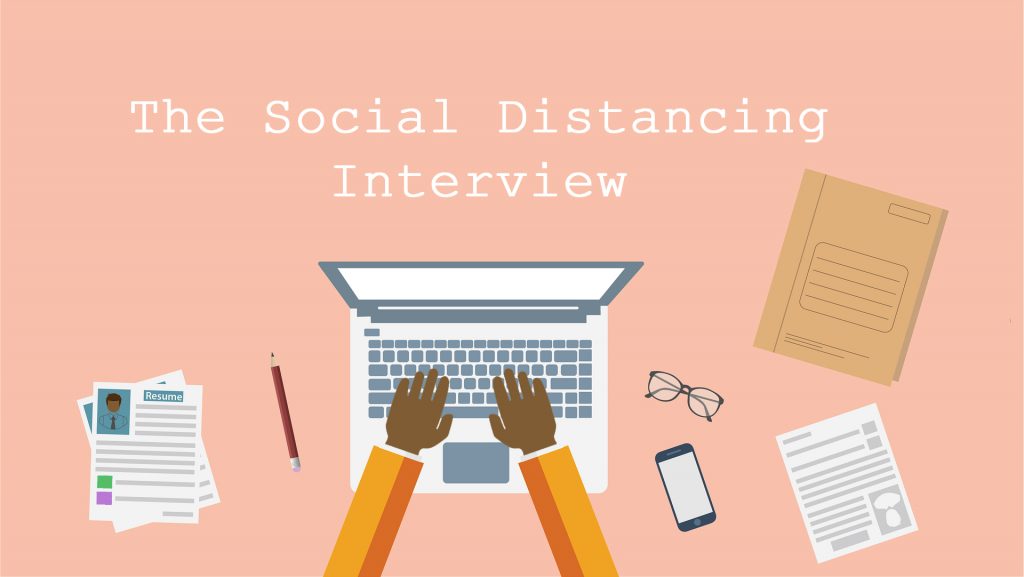by Chrissy Roshak
April 13, 2020
It’s a brave new world for job hunters right now. Considering the skyrocketing numbers of businesses closing their doors, a lot of people have suddenly found themselves job hunting during a pandemic. Many businesses are turning to remote interviews to increase social distancing. But for those of you who find yourself interviewing in person, we’ve put together a few tips to keep you safe:
Before your interview
Have a conversation with the person who scheduled your interview. Ask what their office is doing to prevent the spread of Covid19. It’s fine to be straightforward. Companies that are still open right now will understand your concern and should be able to describe to you what they are doing to keep you safe during your interview. (and if they can’t, it might be a red flag that this isn’t a place you want to work).
Here are some things to check for:
- Sanitizing their office and workspace regularly, including wiping down any testing stations between users
- Separating workstations at least 6 feet apart, including the areas where you will be interviewing and testing
- Hosting your interview away from other workers
- Limiting your interview to essential staff involved in hiring decisions
- Providing hand sanitizer that you will be able to use before and after your interview
Wash your hands
 The CDC recommends washing your hands with soap for at least 20 seconds. Washing with soap is more effective than hand sanitizer. When washing with soap and water isn’t possible, use hand sanitizer. We recommend washing or using hand sanitizer before your interview, and again after your interview.
The CDC recommends washing your hands with soap for at least 20 seconds. Washing with soap is more effective than hand sanitizer. When washing with soap and water isn’t possible, use hand sanitizer. We recommend washing or using hand sanitizer before your interview, and again after your interview.
When you arrive at your interview, check with the person who greets you for a sink or hand sanitizer. Most businesses open and hiring right now will understand, and many will already have hand sanitizer out for you to use.
If you have hand sanitizer, consider bringing some along to keep in your purse or car to use before and after your interview
Keep your hands to yourself
Literally! Try to limit the number of things you touch before, during, and after your interview.
- If you are taking the bus to your interview, try to keep your hands in your lap and avoid touching railings as much as possible. Choose a seat at least 6 feet away from other riders.
- Avoid touching railings on stairs or in the elevator if you need to go upstairs for your interview
- Skip bringing a copy of your resume with you for now. Just make sure you have e-mailed your most recent resume to the person you are interviewing with.
- Avoid shaking hands during your interview. Most interviewers already have your safety in mind and will not initiate a handshake right now. If you do meet with someone who tries to shake hands, just politely decline and cite social distancing.
- Avoid touching doorknobs. If you are going into a closed office for your interview, let your interviewer open the door ahead of you.
- Avoid touching the desk during your interview. Try to keep your hands in your lap rather than on the desk.
- If you will be doing computer testing or electronic onboarding as part of your interview, ask if the testing can be done from home, on your own computer. If not, check if they are sanitizing workstations between users.
- The CDC recommends not touching your eyes, nose, or mouth with unwashed hands. Try to avoid touching your face during your interview.
Practice your interview
Practice your interview at home with a family member or with a friend via a video call. In addition to practicing the usual interview questions, try to be aware of any nervous habits you might have that could spread germs.
- Do you fidget with nearby objects?
- Do you touch your face when you’re trying to remember something?
Make note of anything you catch yourself doing. Try your best to avoid doing those things during your real interview.
If you’re feeling sick
Call and reschedule if you’re feeling sick. Do not attend your interview until you are completely symptom free.

